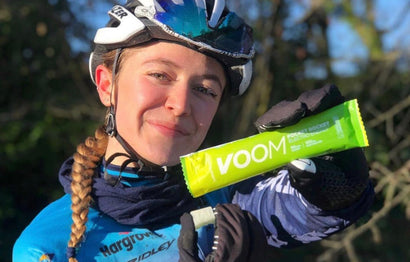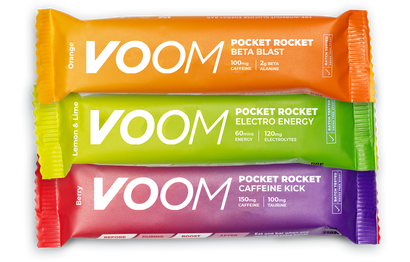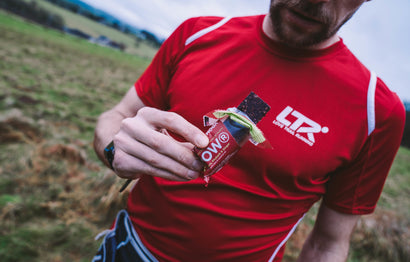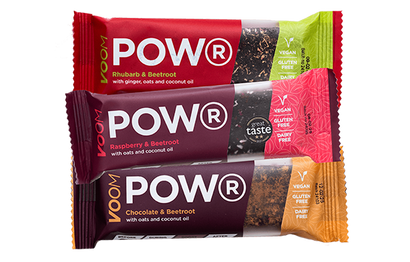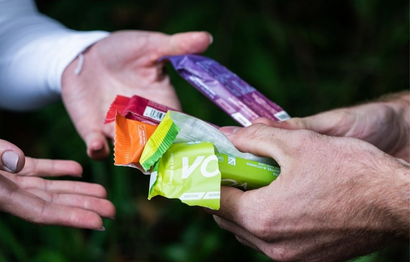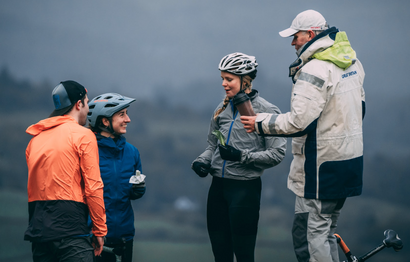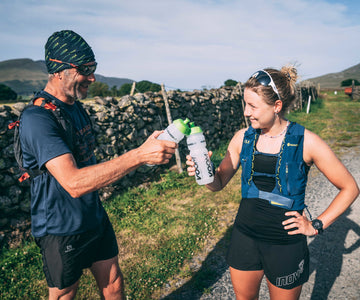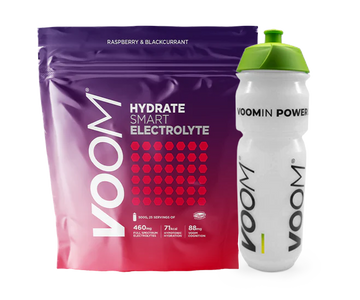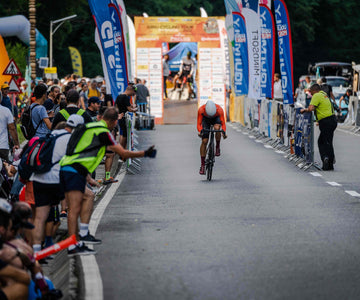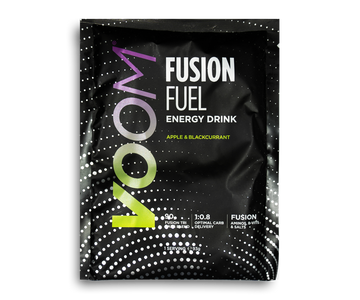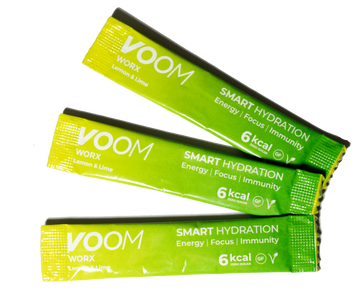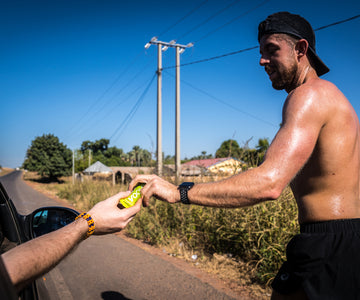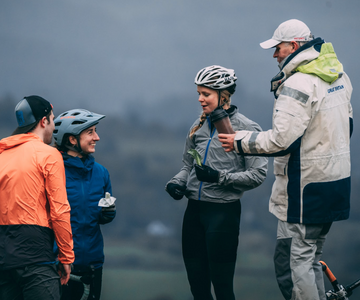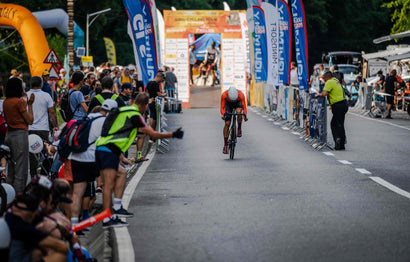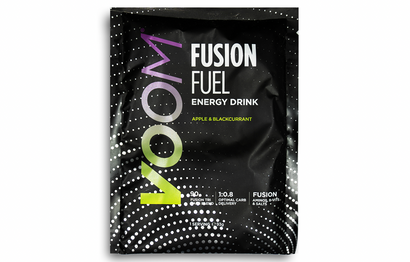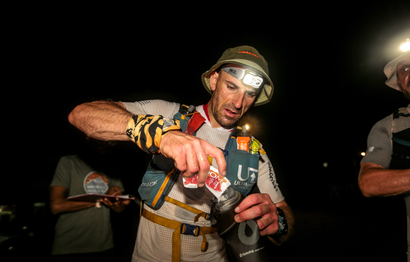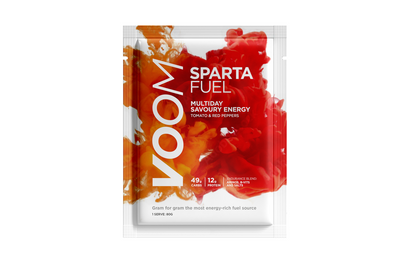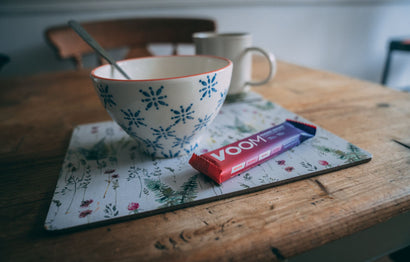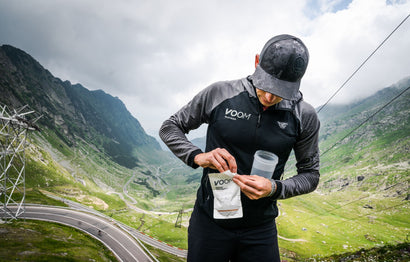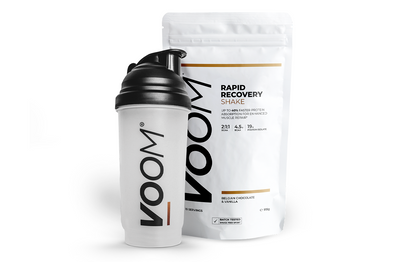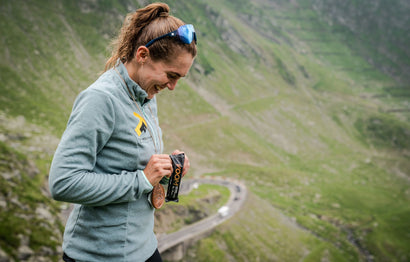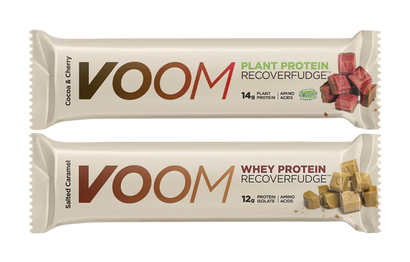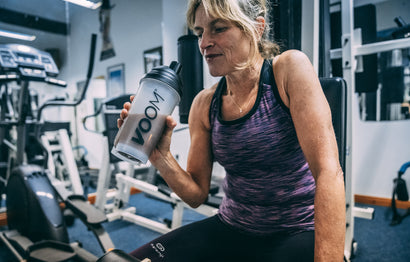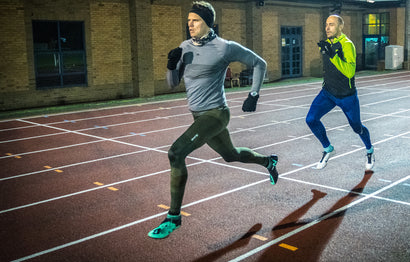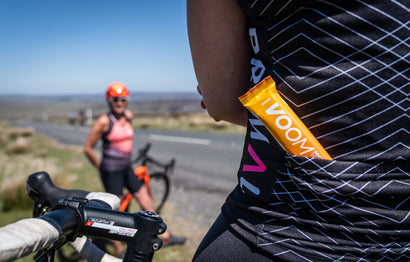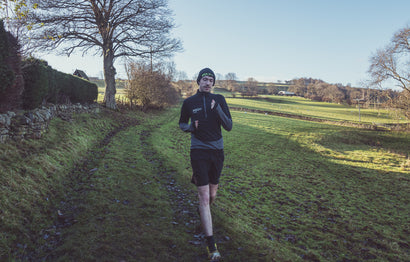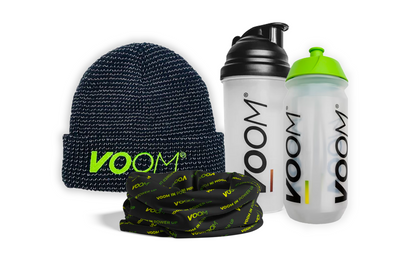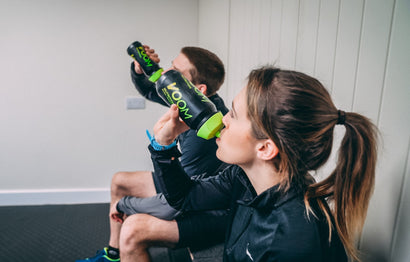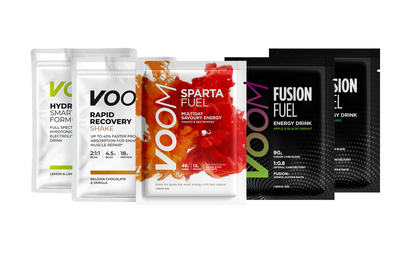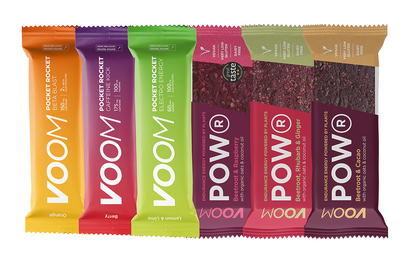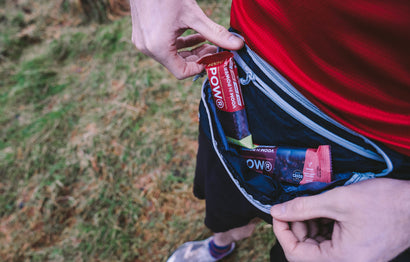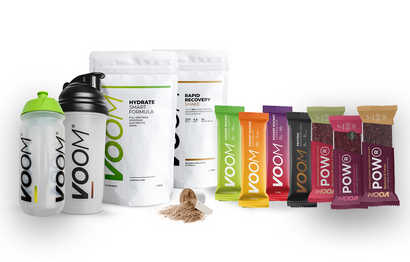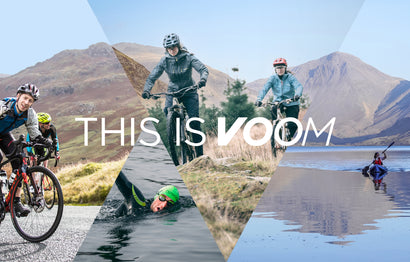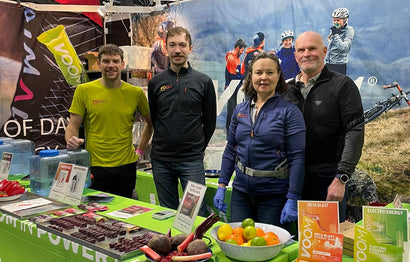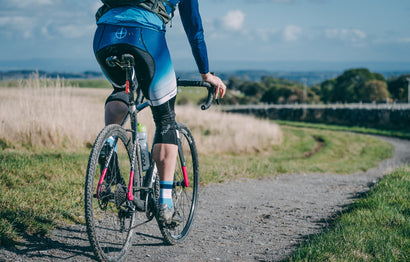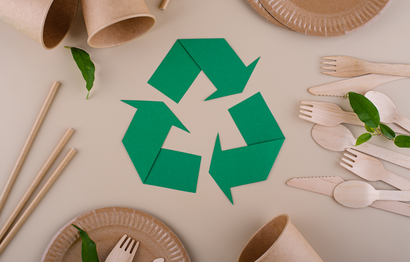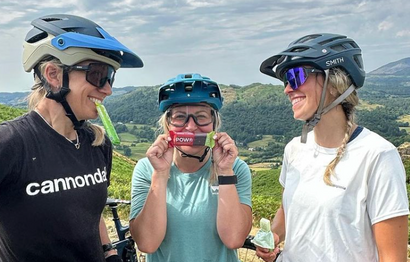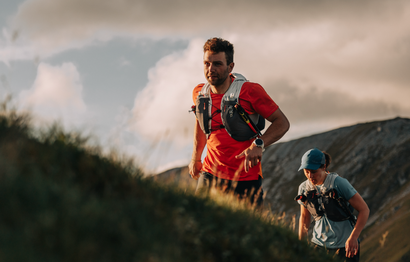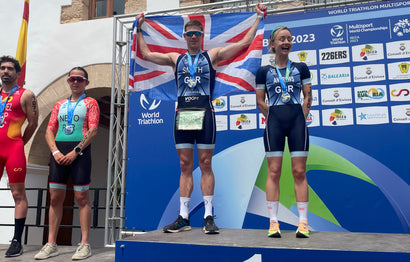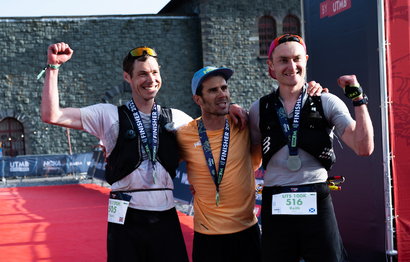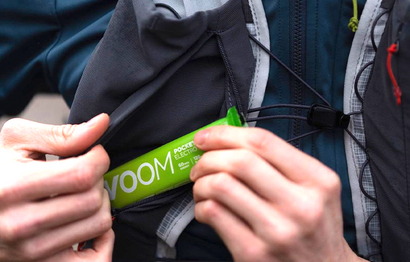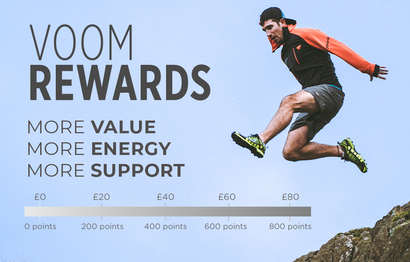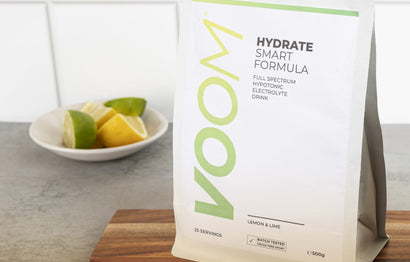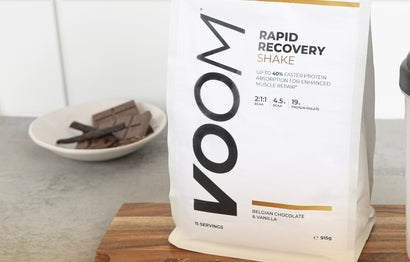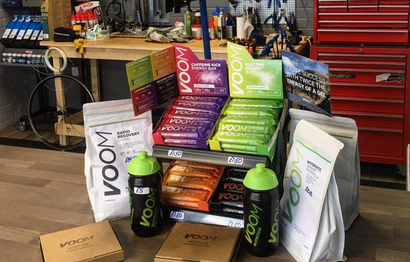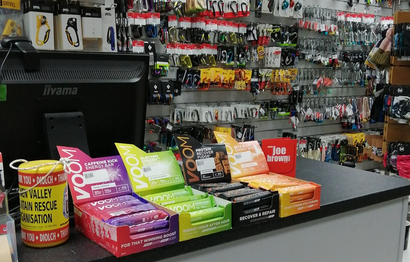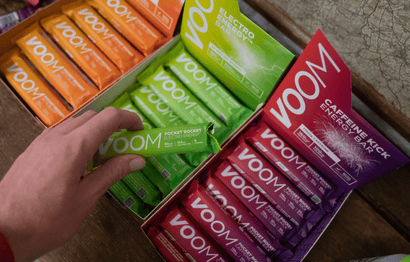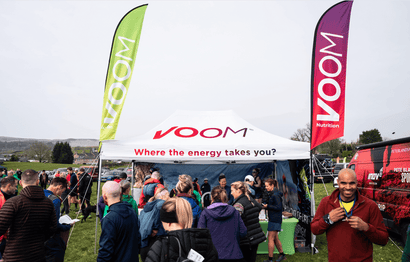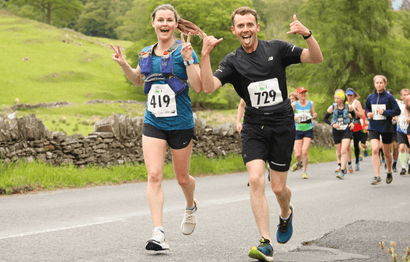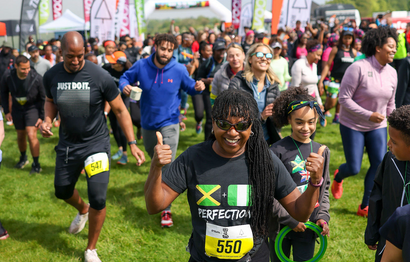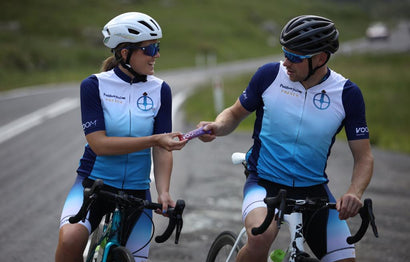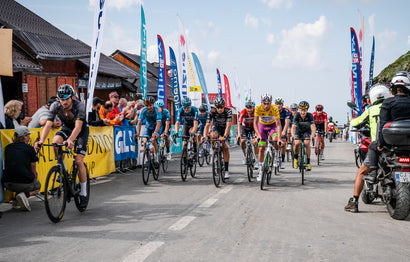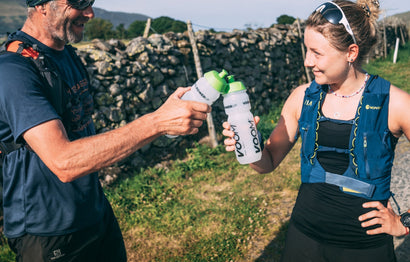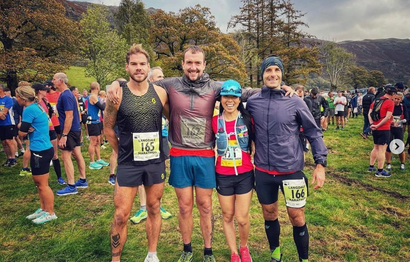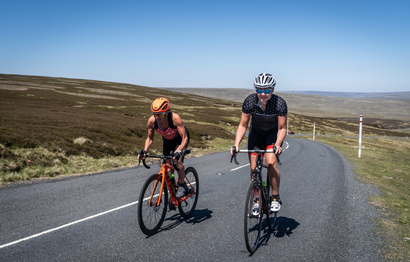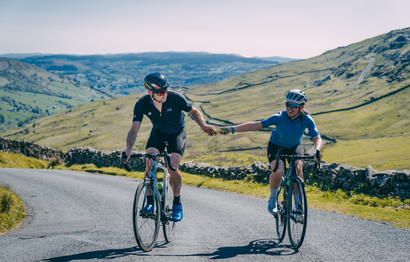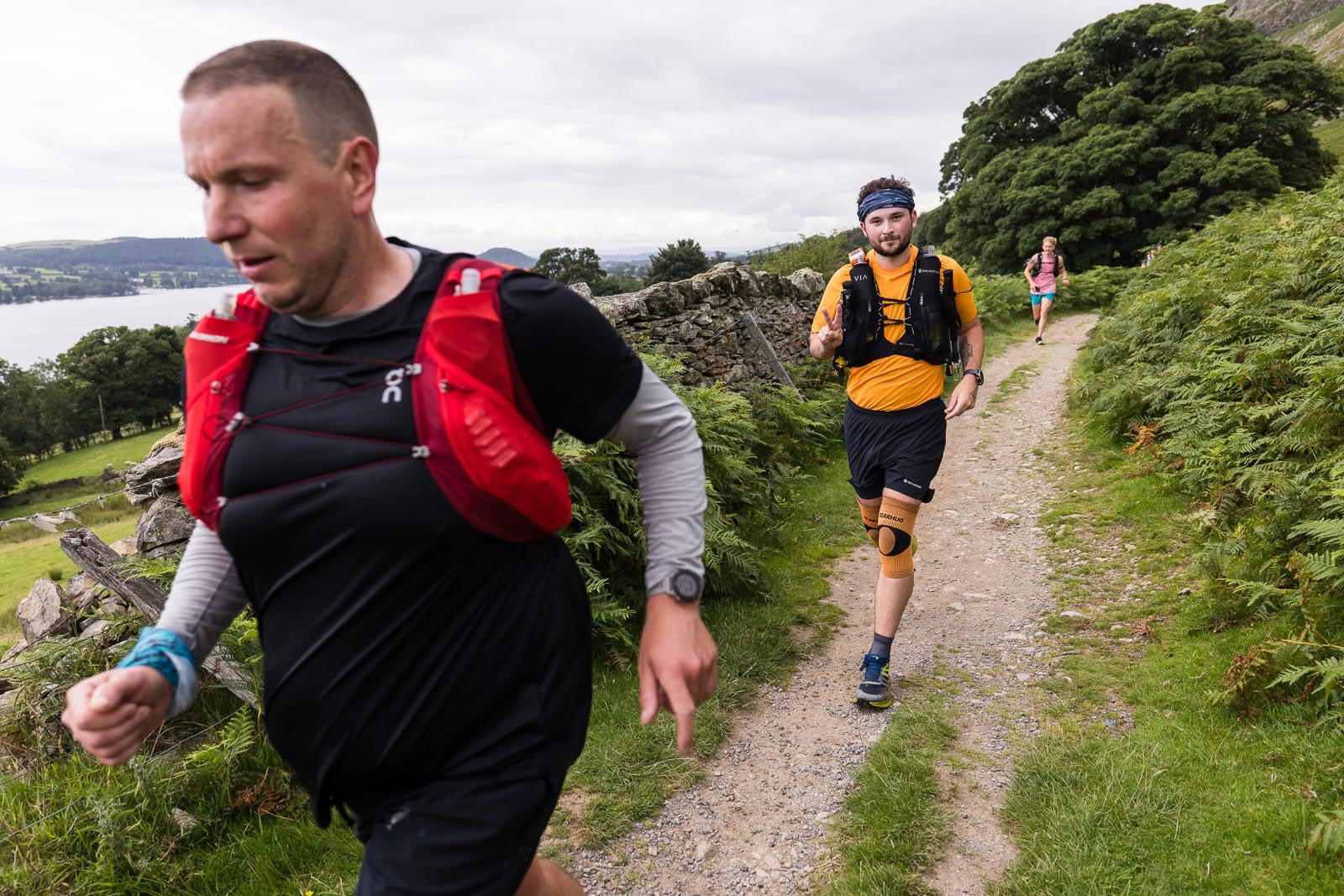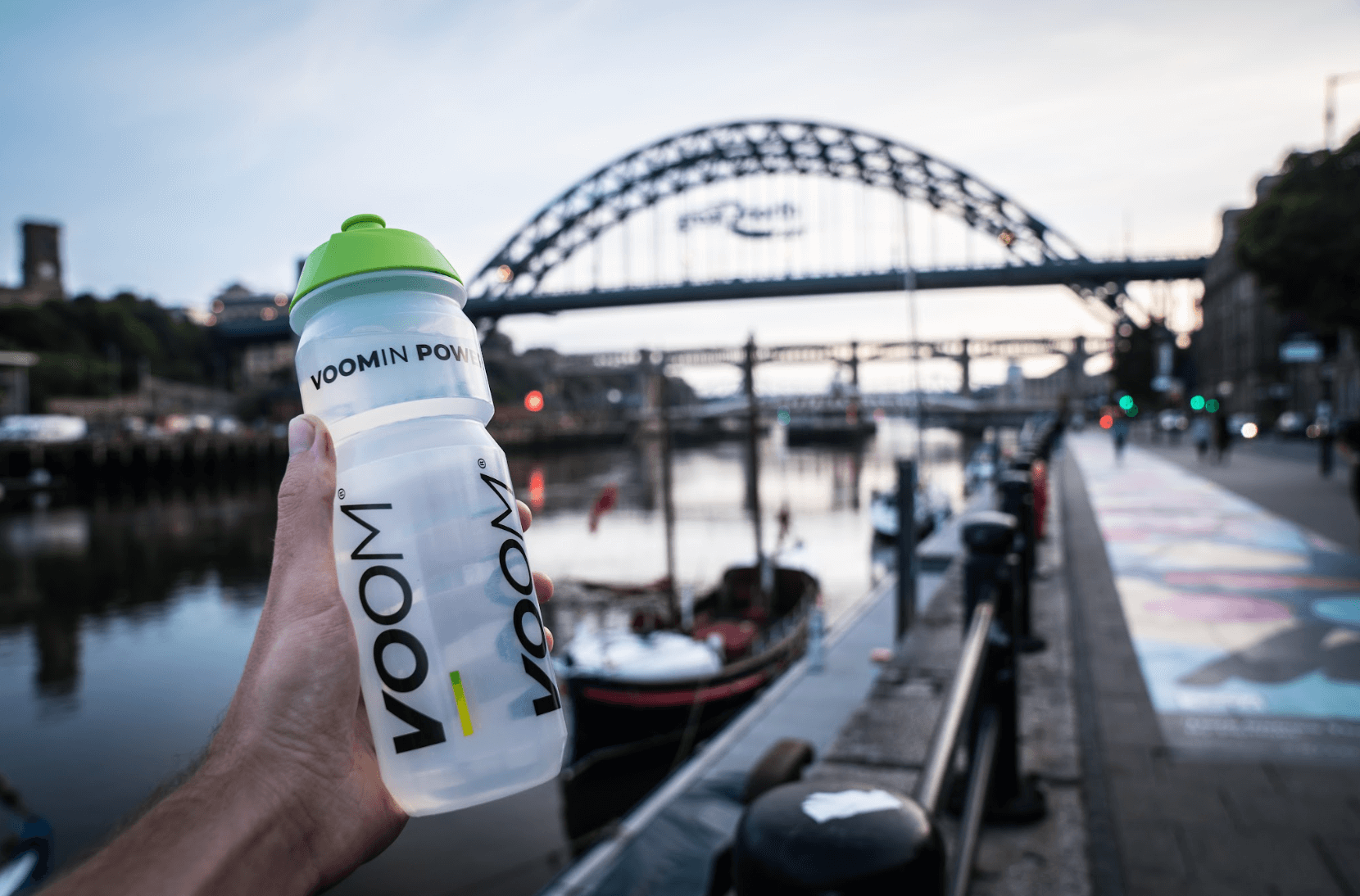With Callum Davidson
When training for a marathon your body is inevitably going to get fatigued and sometimes quite sore! Its therefore important to consider and include adequate recovery in your regime. In fact, it's actually during the recovery period that your body has time to repair itself, thus allow a training adaption to take place and your fitness to improve. There are several elements to optimising your recovery and whilst most of us are too busy to “recover like the pros” there are plenty of easy ways to enhance recovery after run training.

Having analysed the latest research when developing VOOM’s whey protein isolate recovery shakes and the VOOM RecoverFudge protein bar, we have a firm handle on the nutritional side of recovery, but to gain further insight in optimising recovery we spoke to our brand ambassador Callum Davidson. Callum is a high performing endurance runner who balances his training with his job as a teacher – over to you Callum…
Callum Davidson on Recovery for Runners
The best piece of advice I’ve received was from a good friend and training partner Russell Bentley:
“Stress + No Recovery = Injury,
Stress + Rest = Growth.”
Recovery is often overlooked and frequently misunderstood in sport, and as stated above, rest is essential if you want to progress and develop. I’m not going to say that I don’t push the limits like any athlete does, but something I’ve learnt recently is knowing when to push hard on the last rep and when to step away from the track. It’s something where athletes, myself included, repeatedly do the complete opposite of what the body is telling you.
If you’re running well and hitting your target paces all you want to do is run that last rep hard and push the pace, when in reality if you’re hitting your times, you’re already proving your fitness and stopping the session as planned is a reasonable decision. This is something my coach, with a wealth of experience being a former Olympian, truly believes in.

Another common mentality that I’m currently disproving with my recent training is the saying ‘miles in the bank’, a philosophy that I and many others have followed. In reality, in this analogy during sessions and hard efforts you are not ‘banking’ those miles and efforts, you are withdrawing from the bank, and the only way to ‘redeposit’ money back into your account is through appropriate recovery strategies!
Refuel your body post-run
I’m not going to dispute that recovery starts as soon as you finish training, but another thing people often believe which isn’t necessarily accurate, is that you have to eat immediately to get any benefit. Although its beneficial to eat a high carb/protein drink or snack within 30 minutes, humans have elevated nutrient uptakes for around two hours and as long as you consume fuel within this time frame you will recover adequately.

For example, after a hard session I usually, almost immediately, have the VOOM Hydrate Smart electrolyte drink to replenish lost salts and some carbs. I’ll then get changed into warm dry clothes, as for me this is just as important as fuelling your body in terms of maintaining your immune response and dependent on the journey home, I’ll have a VOOM Rapid Recovery Shake either in the car or when I get home.
Sleeping for Recovery
Alongside the nutrition, the key to my and any recovery, is sleep! A poor sleeping habit is something you can’t outrun. As I’m awake at 5:15am Monday to Friday I aim to be in bed for 8:30 and asleep by 9pm on weekdays to get a minimum of eight hours, and I swear by a 1-2 hour nap after my weekend runs. Sleep is the best time for your body to repair itself - you could be sat in front of the TV snoozing on the sofa, but the main recovery occurs during the second cycle of REM (Rapid Eye Movement) sleep, so it's more effective to get in bed and commit to sleeping properly!
Utilise sports therapists and massage
Something I wish I did more and had more access to particularly in these unprecedented times, is regular visits to a sports therapist/massage. A big problem I face is I don’t trust people; I have had some personal horror stories with therapists who have both irritated previous injuries and created new problems meaning I’ve had to have weeks off running when I simply went there for a tune up. However, to reach a new level I believe that biweekly/monthly visits to identify any niggles or muscular imbalances is imperative to enable training hard.

Mental Recovery
A final point of note to touch on is mental recovery, as much as physical recovery is important, the mental aspect is equally influential on performance and being in the correct headspace can make or break your training. Something I swear by in my schedule is always taking Friday afternoon off, I’ll still run between 45-60 minutes before work, but as I double day Monday-Thursday, a Friday evening off makes all the difference to mentally recovery for a big weekend. It means I can finish work, come straight home, shower and eat food at around 6pm, compared to Monday through Thursday it can be around 8pm before I finish eating and have showered. I also make sure my easy runs are easy and I’m not obsessing over pace, just noting time and heart rate; this means that my easy runs can be anywhere from 6:40 - 8 minute mile pace.

Don’t run too hard!
For example I recently ran a 5km time trial in 14:39 which equates to 4:39 minute per mile pace, however on the Wednesday prior to it I ran at 7:55 minute/mile and was exhausted. Every mile needs a purpose and it is so incredibly common in athletes that they are constantly running in this ‘grey area’ and running too fast to recover, which inevitably makes them run too slow in sessions.
How to Recover before a big running event
In the run up to a big event I will usually attempt to maximise my sleep for the two weeks prior as I know with potential travel, nerves and new environments I may not sleep great for the days before the race, but if I have banked time this doesn’t matter. I will also try to make sure I eat more than I usually would, and not particularly manipulate my diet to ‘carb load’ but just eat more volume. People fear being too heavy and want to be ‘race weight’, so much so I was once told by an old coach I should be hungry on the start line, but put simply, 1 Lb is just 454 ml of water, particularly for a longer race you are much better feeling on the full side than being hungry.
‘You only get one body, look after it’.
8 Top Tips to Boost Recovery After Running
-
Hydrate immediately post-run
Get liquids and electrolytes back into your body as soon as possible to replace those lost in sweat. The VOOM Smart Hydrate is perfect for this with 460mg of full spectrum electrolytes.
-
Post-Run Nutrition: Carbs AND Protein
Consume both carbs, to replenish muscle glycogen stores, and protein to help rebuild and repair muscle tissues. The body has elevated nutrient uptake for up to 2hours post exercise so make sure you eat/drink within this time. Research suggests a 3:1 ratio of carbs to protein can give optimal recovery.
-
Train hard, sleep easy!
Sleep, and particularly the REM phase of sleep, is when recovery can occur in the body, so make sure you’re getting enough good quality sleep.
-
Massage
Massage can reduce muscle tightness and give the circulatory system a boost which aids recovery at the cellular level by improving nutrient delivery and removal of waste products and toxins. If you can include a semi-regular massage your body will thank you for it!
-
Don’t run too hard!
Some runs are in the training plan to allow recovery from longer or higher intensity sessions, so if you run too hard on your easy runs, you’ll accumulate more fatigue rather than recover from past exertions. Running easy when you’re supposed to go easy will help you run fast when it's supposed to be fast!
-
Self-massage: use a foam roller or massage gun
Using a foam roller can be a great way to relieve muscle tension and soreness and improve your range of movement. Recently ‘massage guns’ such as the Theragun Pro have gained popularity as an easier form of self-massage. These guns are a form of percussive therapy seeking similar benefits to foam rolling or massage. Both foam rolling or a massage guns can be added as part of a warm up to start increasing blood flow to the muscles too.
-
Ice baths or Cryotherapy
Not a new concept but cold-water immersion or the use of ice (cryotherapy) has been shown to improve recovery and reduce inflammation and muscle soreness. When submerged in cold water blood vessels undergo vasoconstriction (narrowing) temporarily reducing blood supply and then when out of the cold-water dilation occurs and fresh blood flushes through the tissues.
-
Mental Recovery
Don’t underestimate the mental work you do in getting ready for training, running tough sessions, and then reflecting on performances good or bad. If you can give yourself some down time away from running to switch off, you’ll be in a better headspace for your next run or sessions.
Thanks to Callum Davidson for his insight and tips on recovery.


